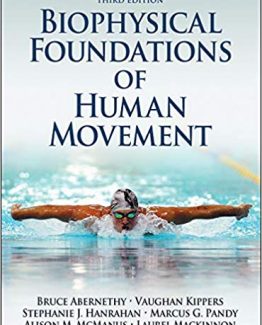Personality Theories Workbook 6th Edition by Donna Ashcraft, ISBN-13: 978-1285766652
[PDF eBook eTextbook] – Available Instantly
- Publisher: Cengage Learning; 6th edition (January 7, 2014)
- Language: English
- 176 pages
- ISBN-10: 1285766652
- ISBN-13: 978-1285766652
The case studies in PERSONALITY THEORIES WORKBOOK, Sixth Edition, help you learn and apply personality theories to real-life examples of typical–rather than solely abnormal–behavior. The wide range of case studies is accompanied by application questions that guide you through an analysis of each case, prompting you to consider how a particular theorist would view it. Theory comparison questions ensure that you understand the differences between each theory. Succinct, affordable, and accessible, PERSONALITY THEORIES WORKBOOK offers an excellent assortment of cases that help you really understand personality theories and concepts as well as how they apply in real life.
Table of Contents:
Preface
Contents
Section I: Learning and Applying the Theories
Ch 1: Sigmund Freud (1856-1939): Psychoanalytic Theory Why Learn This Theory?
Case Study 1: Sigmund Freud
Case Study 2: Sigmund Freud
Ch 2: Carl Jung (1875-1961): Analytic Theory Why Learn This Theory?
Case Study 3: Carl Jung
Case Study 4: Carl Jung
Ch 3: Erik Erikson (1902-1994): Psychosocial Theory Why Learn This Theory?
Case Study 5: Erik Erikson
Case Study 6: Erik Erikson
Ch 4: Alfred Adler (1870-1937): Individual Psychology Why Learn This Theory?
Case Study 7: Alfred Adler
Case Study 8: Alfred Adler
Ch 5: Karen Horney (1885-1952): Psychoanalytic Social Theory Why Learn This Theory?
Case Study 9: Karen Horney
Case Study 10: Karen Horney
Ch 6: Erich Fromm (1900-1980): Humanistic Psychoanalysis Why Learn This Theory?
Case Study 11: Erich Fromm
Case Study 12: Erich Fromm
Ch 7: Harry Stack Sullivan (1892-1949): Interpersonal Personality Theory Why Learn This Theory?
Case Study 13: Harry Stack Sullivan
Case Study 14: Harry Stack Sullivan
Ch 8: John Bowlby (1907-1990): and Mary Ainsworth (1919-1999): Attachment Theory Why Learn This Theo
Case Study 15: John Bowlby and Mary Ainsworth
Case Study 16: John Bowlby and Mary Ainsworth
Ch 9: Abraham Maslow (1908-1970): Holistic Dynamic Theory Why Learn This Theory?
Case Study 17: Abraham Maslow
Case Study 18: Abraham Maslow
Ch 10: Carl Rogers (1902-1987): Person-Centered Theory Why Learn This Theory?
Case Study 19: Carl Rogers
Case Study 20: Carl Rogers
Ch 11: Rollo May (1909-1994): Existential Analytic Theory Why Learn This Theory?
Case Study 21: Rollo May
Case Study 22: Rollo May
Ch 12: George Kelly (1905-1967): Personal Construct Theory Why Learn This Theory?
Case Study 23: George Kelly
Case Study 24: George Kelly
Ch 13: Burrhus Frederic Skinner (1904-1990): Radical Behaviorism Why Learn This Theory?
Case Study 25: Burrhus Frederic Skinner
Case Study 26: Burrhus Frederic Skinner
Ch 14: Albert Bandura (1925-): Social Cognitive Theory Why Learn This Theory?
Case Study 27: Albert Bandura
Case Study 28: Albert Bandura
Ch 15: Julian Rotter (1916-): Social Learning Theory Why Learn This Theory?
Case Study 29: Julian Rotter
Case Study 30: Julian Rotter
Ch 16: Gordon Allport (1897-1967): Trait Theory Why Learn This Theory?
Case Study 31: Gordon Allport
Case Study 32: Gordon Allport
Ch 17: Raymond Cattell (1905-1998): 16 Factor Theory Why Learn This Theory?
Case Study 33: Raymond Cattell
Case Study 34: Raymond Cattell
Ch 18: Robert McCrae (1949-) and Paul Costa (1942-): Five Factor Theory Why Learn This Theory?
Case Study 35: Robert McCrae and Paul Costa
Case Study 36: Robert McCrea and Paul Costa
Ch 19: Evolutionary Psychology: Why Learn This Theory?
Case Study 37: Evolutionary Psychology
Case Study 38: Evolutionary Psychology
Section II: Learning and Applying Limited Domain Theories
Ch 20: Martin Seligman (1942-): Learned Helplessness and Learned Optimism
Case Study 39: Martin Seligman
Case Study 40: Martin Seligman
Ch 21: Meyer Friedman (1910-2001) and Ray Rosenman (1920-2013): The Coronary Prone Personality (Type
Case Study 41: Meyer Friedman and Ray Rosenman
Case Study 42: Meyer Friedman and Ray Rosenman
Ch 22: Social Anxiety
Case Study 43: Social Anxiety
Case Study 44: Social Anxiety
Section III: Additional Theory Comparison: Multiple Explanations for the Same Behavior
Ch 23: Theory Comparison Charts
Case Study 45
Case Study 46
Case Study 47
Case Study 48
Case Study 49
Donna Ashcraft is Professor of Psychology at Clarion University of Pennsylvania where she is active in CORAL (Collaborative Online Research and Learning), a task force dedicated to developing social constructivist pedagogy for the use of technology in the classroom. She received her BA in Psychology from State University of New York College at Buffalo and her MA and PhD in Social/Personality Psychology from State University of New York at Albany.
What makes us different?
• Instant Download
• Always Competitive Pricing
• 100% Privacy
• FREE Sample Available
• 24-7 LIVE Customer Support






Reviews
There are no reviews yet.